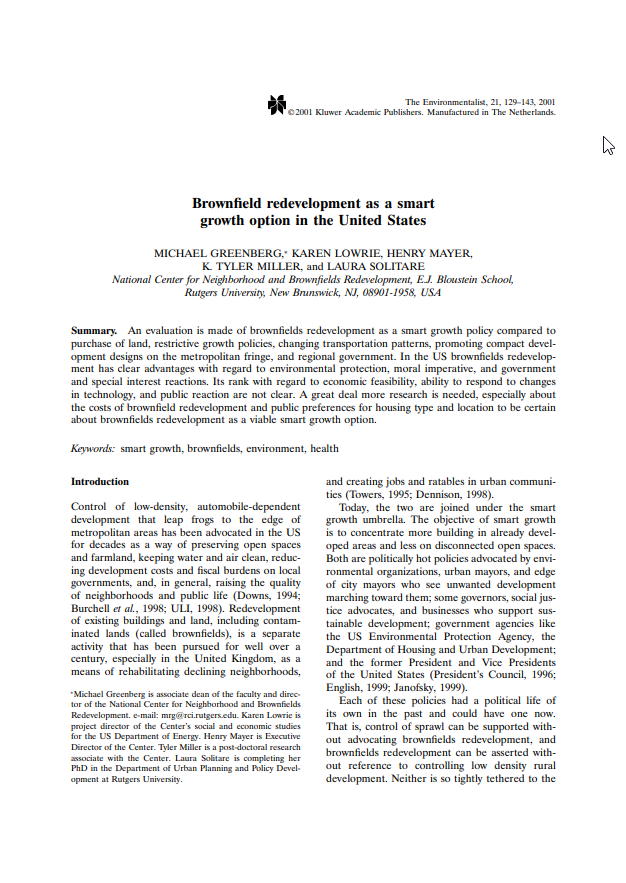An evaluation is made of brownfields redevelopment as a smart growth policy compared to purchase of land, restrictive growth policies, changing transportation patterns, promoting compact development designs on the metropolitan fringe, and regional government. In the US brownfields redevelopment has clear advantages with regard to environmental protection, moral imperative, and government and special interest reactions. Its rank with regard to economic feasibility, ability to respond to changes in technology, and public reaction are not clear. A great deal more research is needed, especially about the costs of brownfield redevelopment and public preferences for housing type and location to be certain about brownfields redevelopment as a viable smart growth option.
